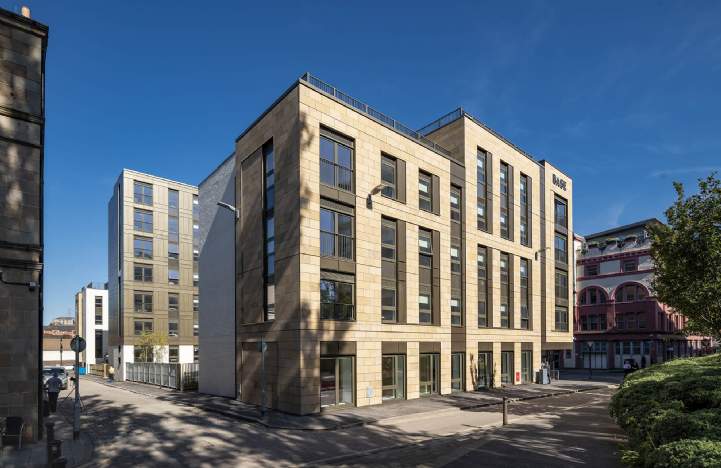2021 has seen significant confidence return to the UK’s Purpose-Built Student Accommodation Sector
Occupancy and rent collection have returned to close to historic levels
Whilst 2020 saw lower occupancy and rent collection, PBSA still weathered the pandemic better than many sectors. Unite, the largest PBSA operator in the UK, saw 94% rent collection in 2020/21. Empiric Student Property Plc and GCP Student Living Plc, the other two listed vehicles in the space, saw a bigger hit to their rent collection due to their direct-let focus and stock typology, but they still collected around two thirds of rent - well ahead of the retail sector, for example.
Recent reports released by these operators show a strong recovery, suggesting that 2020 was a short term blip – generally, both domestic and international students have returned to campus. Unite has reported 94% occupancy in 2021-22, up from 88% occupancy in 2020-21, with rental growth of 2.3%. Alongside this return to typically high occupancy levels, there has also been very strong application growth of over 240,000, driven by domestic and non-EU international students. Looking forward, the number of 18-year-olds in the UK is projected to grow by more than 160,000 over the next decade, with a boost to domestic demand boding well for the sector’s outlook and giving buyers comfort to re-engage in the sector at scale.

Base Glasgow Purchased for £35m by Ares/Generation
In contrast to many other real estate sectors, 2021 has seen significant confidence return to the UK’s Purpose-Built Student Accommodation (PBSA) sector
Richard Valentine-Selsey
Investment Volumes
With a speedy return to normality and strong demand fundamentals supporting the longer term outlook, the UK's post-Covid student accommodation market is attractive to both private equity firms and institutional investors.
Interest in the sector is also being driven by the broader trend of re-allocation from ‘traditional’ real estate sectors to rented residential accommodation, which has been further accelerated by the pandemic. PBSA is arguably the most accessible subsector for buyers looking to reallocate to operational real estate, as it is mature, income-producing and comparatively high-yielding.
It’s hardly surprising therefore, that the bulk of the capital currently targeting the sector is from core and core plus investors. Savills have counted eight new or recently raised core plus funds targeting UK PBSA, with five having deployed or about to deploy into the sector already, including the likes of Ares who, alongside their JV partner Generation Estates, purchased 3 assets in Glasgow, Cardiff and Exeter in Q1 2021 for a total of £192.5m
These core plus buyers are able to secure high quality stock in strong regional cities at 5% NIY+ and are similar in their return requirements to the Asia-Pacific (predominantly Singaporean) cash-on-cash investors. In addition, UK pension funds continue to pursue the sector and are currently under offer on several opportunities.
If investment continues as expected in Q4, we will see total volumes invested in 2021 comfortably clearing £3.25bn
Nicholas Gibson
2021 has seen a substantial amount of investment activity to date, with £1.31bn transacted in the first quarter of the year alone, one of the largest quarters on record. Activity in Q2 and Q3 has also been relatively strong, with a further £1.23bn traded over this period.
Around £900m of the investment traded in 2021 consists of four portfolios. March saw the KKR/RHC portfolio (Greystar) and Fusion Students Portfolio (Lone Star) trade for £291m and £315m respectively, whilst Unite sold the Willow Portfolio to Aventicum Capital Management for £132.5m. Then in August Vita sold the Project Spring Portfolio (Mapletree) for approximately £165m. Portfolios provide an investor with instant scale, and these trades demonstrate the significant confidence in UK PBSA.
Single asset deals this year have also been much larger on average. Between 2016 and 2020, the average single asset traded was around 300 beds, whereas in 2021 so far it has been over 400 beds. If investment continues as expected in Q4, we will see total volumes invested in 2021 comfortably clearing £3.25bn. This may be a conservative forecast, given the estimated £14bn of dry powder targeting the sector and the potential for off-market transactions.
This wall of money aimed at the sector is relatively evenly split in terms of deal type it’s targeting. Those chasing single assets represent £6.0bn of the dry powder, whilst those targeting portfolios make up £8.0bn. Portfolios do offer benefits of scale, but don’t tend to trade as often as single assets. £9.0bn of the dry powder is targeting core or core plus returns, while only £5.0bn is pursuing opportunistic or value add strategies.
Continued yield compression
Live deals indicate that yields are tightening, both in London and in the regions. The ongoing pressure to deploy capital, and to reallocate out of other real estate sectors, is driving strong interest in high-quality PBSA opportunities in the best student cities.
Two thirds of single asset transactions in 2021 to date have been in the 10 cities with the highest full-time student populations, and investors clearly favour opportunities located in close proximity to the highest ranked universities. Conversely, assets in smaller, secondary markets that are home to weaker universities are struggling to sell, with the pricing gap between the two ends of the market continuing to widen.
Outlook
Higher inflation is likely to have a number of consequences for the sector, with the impact of increased operating costs likely resulting in increased rents, whilst higher build costs will put further pressure on both rental levels and investment pricing.
With the wall of core and core plus capital targeting the sector, combined with the scarcity of high-quality investment opportunities, yields are likely to compress further. As a consequence, we expect to witness a number of existing investors moving up the risk curve into development funding, as they are priced out of the market for prime, stabilised assets.
.jpg)
Vita Leeds sold to Mapletree as part of the £165m Project Spring Portfolio
-(1).jpg)